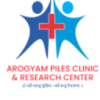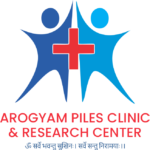The consumption of coffee and tea is a daily ritual for millions of people worldwide. These beverages are cherished not only for their flavors but also for their ability to enhance alertness and provide a sense of comfort or routine. However, it’s essential to delve into the implications these popular drinks may have on digestive health, particularly in relation to piles, a condition known to affect a significant portion of the adult population at some point in their lives.
Role of Coffee and Tea in Daily Habits
Coffee and tea are integrated into the daily lives of individuals for reasons spanning from their stimulating effects to their cultural significance. The ritual of starting the day with a hot cup of coffee or winding down with tea is ingrained in many cultures around the globe. While these practices bring a sense of rhythm and enjoyment, it is paramount to consider the potential health impacts, especially concerning digestive wellness and disorders such as piles.
Key Ingredients in Coffee and Tea
Both coffee and tea contain a variety of compounds, with caffeine being the most prominent stimulant. Besides caffeine, these beverages are rich in antioxidants and other phytochemicals, which have been researched for their health benefits. Nonetheless, the focus often shifts to caffeine due to its immediate and noticeable effects on the body, including its impact on the digestive system.
Impact of Caffeine on Digestive Health
Caffeine, a central nervous system stimulant, is known to increase alertness and energy levels. However, its effects extend to the digestive system, where it can stimulate bowel movements. This stimulatory effect, while beneficial for some, can exacerbate digestive issues for individuals with sensitive digestive systems or existing conditions like piles. Caffeine encourages the body to lose fluids, potentially leading to dehydration, a known aggravator of piles symptoms.
Links Between Coffee, Tea, and Piles
Insights from Arogyam Piles Clinic and Research Center, Mohali, Chandigarh highlight a correlation between the consumption of caffeinated beverages and the exacerbation of piles symptoms. Caffeine’s diuretic effect can lead to dehydration, reducing stool moisture, which in turn, makes defecation more strenuous. Straining during bowel movements is directly linked to the formation and worsening of piles. Furthermore, the clinic’s research suggests that the thermal effect of consuming hot beverages might also contribute to discomfort and symptom flare-ups for individuals with piles.
Insights from Arogyam Piles Clinic, Mohali, Chandigarh
The study conducted by Arogyam Piles Clinic emphasizes the significance of recognizing the dietary and lifestyle factors that may influence the development and management of piles. Through their studies, it has been acknowledged that while the moderate consumption of coffee and tea may pose minimal risk, habitual intake, particularly in large quantities, can have adverse effects on individuals predisposed to or already suffering from piles.
Recommendations for Consumption Moderation
In light of the evidence presented by Arogyam Piles Clinic and Research Center, Mohali, Chandigarh moderation is key when it comes to the consumption of coffee and tea, especially for those at risk of or currently experiencing piles. Limiting intake, opting for lower-caffeine alternatives, and ensuring adequate hydration are practical steps that can mitigate the negative impacts on digestive health. Emphasizing the importance of a balanced diet and healthy lifestyle practices can further contribute to the prevention and management of piles, enhancing overall well-being.
Understanding the nuanced relationship between coffee, tea, and digestive health demands a mindful approach to daily consumption habits. By incorporating the insights and recommendations from piles experts at Arogyam Piles Clinic and Research Center, Mohali, Chandigarh individuals can make informed decisions that support their digestive health and minimize the risk of developing or aggravating piles.




